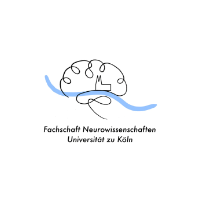AM-6(a) - Neuroimaging
This course takes place weekly (usually on Monday evenings). It consists of a small lecture in which a different instructor gives a lecture on a neuroimaging or associated method in each hour. In addition, there is a student lecture in each hour in which a study is presented that deals with the corresponding method that is the topic of the hour. This lecture is one of the two exam assignments in the course. The other exam credit is a term paper, which should be approximately 20 pages and have at least 20 original studies as references. Please note that the lecture and the term paper must not be about the same topic, so that you get to know two different methods in more detail.
AM-6(b) - Cellular Signal Transmission
AM-7(a) - Medical Imaging in Stereotactic Neurosurgery
This course takes place weekly (usually on Mondays at noon) and consists of a lecture. In addition, the person responsible for the module usually arranges one or two practical sessions, such as a visit to a stereotactic OR or an MRI measurement. Especially at the beginning of the lectures, the physical basics of imaging techniques are covered, which can seem daunting at first. However, as the course progresses, the link to the clinic is further opened up. The module ends with a multiple-choice exam, which is also very manageable if you have previously dealt with the contents of the lecture.
AM-7(b) - Retinal Immunology and Gene Regulation
This is a two-week block course during the lecture period. At the beginning of each day, there is an approximately one-hour preliminary meeting with theoretical input, which is also used to clarify questions for the upcoming experimental steps. This means that you have to prepare in advance for the individual days and roughly know the experiments that are to be carried out. During the week there will also be smaller student presentations or handouts on assoicated topics that you will have to give or prepare. After the two weeks there will be an oral exam. The questions are not only related to the practical aspects of the experiments ("Which steps have to be performed when washing a cell culture?") and the theoretical background knowledge ("What should be shown/achieved with the experiment?"), but also to some more general theoretical background knowledge ("How is the retina structured?").
AM-7(c) - Data Analysis in Life Sciences
In this two-week block course you will learn how to use Python. It will be cognitively demanding to be in front of the PC all day thinking about programming, but in the end you will have a solid basic knowledge of Python. There are not only introductory explanations but also many programming exercises, which have various references to life sciences. In case of problems, the module instructors are usually available quickly to help you. Previous knowledge in this area is helpful, but definitely NOT A MUST: You can complete this course without any prior knowledge. At the end of the course you will receive assignments that you have to work on alone. You will then submit the script and be asked about it in an oral exam to make sure you have understood the principle behind the programming.
